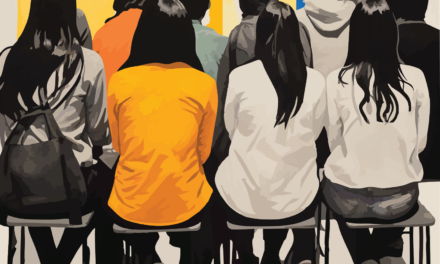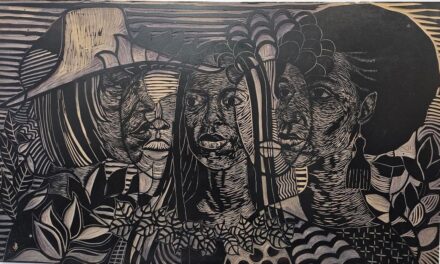When my family saw the schedule for the World Cup this summer, we were filled with both delight and dread.
As longtime soccer fans, we looked forward to the prospect of witnessing a historic three-peat by the U.S. Women’s National Team. We also were thrilled to learn that Vietnam had qualified for the World Cup for the first time in history. But when we learned that these squads would face each other in their opening match for the global tournament, we felt uneasy.
This matchup is complicated for Vietnamese Americans, who have contended with these two nations’ fraught David vs. Goliath history for most of our lifetimes. Vietnamese American communities still struggle with their feelings about their homeland, since many escaped the communist regime after the war.
Though it has been five decades since the war’s end, traumatic and bitter memories linger, especially for the older generations. What feelings will arise when we watch these two teams meet, with players who were born long after these countries’ war had ended?

How soccer helped my refugee family
As someone who has never played soccer, the sport has occupied a surprisingly significant portion of my life. With refugee parents who worked multiple jobs, my brother and I were not allowed to play sports. Yet my father was a huge soccer fan. His playing credentials were purely recreational – he had played as a child and young adult in Vietnam but was then interrupted by the war, displacement and resettlement in America.
Soccer provided the best escape from these distressing memories. He would exclaim over every goal, and marvel at the foot skills and creativity of the players, regardless of their gender. In 1999, he and my brother attended the World Cup final at the Rose Bowl near Los Angeles, where Brandi Chastain famously tore off her jersey after her winning penalty goal against China. My father was especially thrilled at the result: His naturalized country beating a former colonizer of his home country.
Fall of Saigon:Half a century later, the ghost of South Vietnam still haunts my family
If my father were alive today, I imagine his reactions over the USA-Vietnam matchup: He’d roll his eyes over the communist flag, flinch at references of the country’s liberation and peace in interviews, feel pride for his former homeland as the players ran out to the field, and shake his head in embarrassment if they did not perform well.
Global politics and relations have always played a role in sports, and fans cannot help rooting for their country against former foes or allies. For Vietnamese Americans still angry at the communist regime, they will cheer for the Americans. For those who’ve returned to the motherland to live, do business or visit, their loyalties will make their jersey choice more complicated.
Growing up, I was challenged by strangers and even relatives to pick an identity. Was I Vietnamese or American? I often demurred, or argued I was both, because I didn’t feel comfortable choosing. There were too many times when I felt, or was told, I was neither.
What soccer now means to my Vietnamese American children
My kids have a very different childhood. They are surrounded by people of diverse backgrounds, and especially those with mixed heritages like their own. They were exposed to multiple sports and activities, and both have continued soccer at the youth competitive club level. Although I still struggle to understand what offside means, I cheer every game from their own club games and our local professional team, the Oakland Roots, to the matches we watch on television in the Premier League, where our favorite team is Tottenham Hotspur.

It has been gratifying to see how diverse both of my kids’ teams have been over the years, so different from the all-white squads I witnessed growing up in Irvine, California. And the U.S. Women’s National Team roster is more diverse this year than in previous years, with nine players identifying as women of color.
My kids want to cheer on their heroes Megan Rapinoe and Rose Lavelle without guilt. I want to take pleasure in seeing Vietnamese players on an international stage. I do not want to see the USA push Vietnam around again, even if it is only on a soccer pitch.

Vietnam’s qualification for this World Cup is indeed an incredible accomplishment. Fielding its first women’s national soccer team in 1997, this is a young, untested team of players still finding their footing. The USWNT is the clear favorite to win the tournament, whereas Vietnam will be lucky to make it out of the group stage with a single point.
The World Cup is an inspiring exhibition of elite international athletes, but it is also a sobering reminder of the global economic disparities of its participants. While the USWNT has famously fought for gender equality of pay and resources compared with the men’s team, other international women’s teams face similar – if not more difficult – challenges, struggling for basic support in their home countries to compete in a sport to which they’ve dedicated their lives.
Finding home in Hanoi:Learning about our past in Vietnam helps my kids see beyond legacy of war
On Friday, we plan to serve American and Vietnamese appetizers for our family’s game watching party. My children are excited for the start of the World Cup. They care less about nationalities and more about soccer.

For the Vietnamese players, they carry the hopes of their nation. Vietnamese people around the world are already enormously proud of them. These women will demonstrate on a global stage that Vietnam is much more than its history. It has overcome immense challenges. It can play the beautiful game, too.
Aimee Phan is the author of the books “We Should Never Meet,” “The Reeducation of Cherry Truong” and a forthcoming young adult duology.





